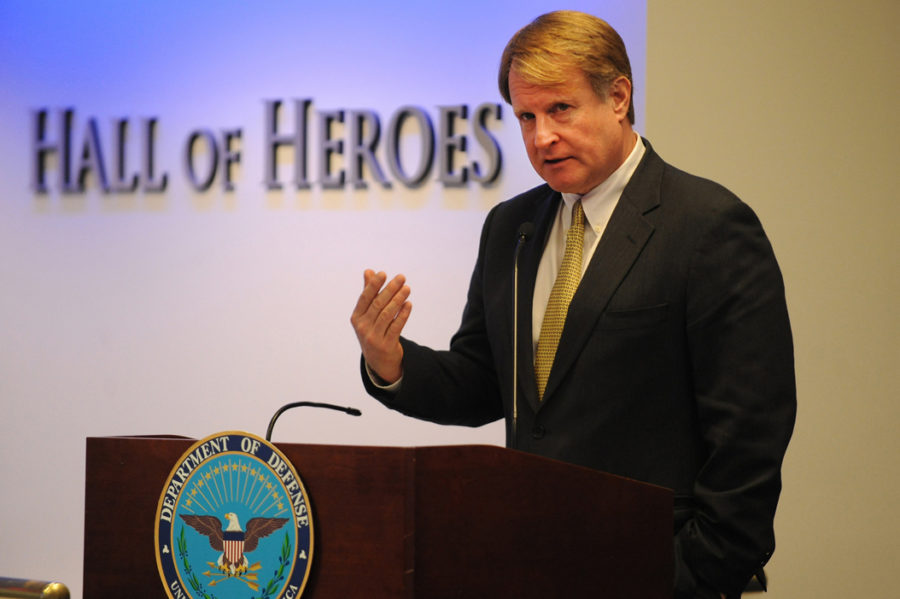Several developments over the last few weeks have shown that Pittsburgh’s issues with lead pipe contamination in public water are far from over.
Despite the end of the Democratic mayoral primary last week decreasing its visibility, a report last week from County Controller Chelsa Wagner, a bill in the state Senate and the establishment of a county task force promise to continue pushing the issue forward.
The Pittsburgh Water and Sewer Authority’s partial lead line replacement project could put huge numbers of city residents in danger of water contaminated with lead, Wagner said in a statement last Tuesday.
“No level of lead is safe,” Wagner said. “It is long past time for this city to get its house in order and do right by our residents and our children.”
Some local officials are taking proactive measures to address the issue of lead in city. County Executive Rich Fitzgerald earlier this month created a task force specifically charged with examining its effects on children.
The nine-member task force will look at current research and talk to experts to asses the risk of lead for Allegheny County’s population.. According to a release from Fitzgerald’s office, the information gathered by the task force will be used to “examine possible policies that protect the public from lead exposure” and “make recommendations for interventions.”
The PWSA’s partial replacement project began after an investigation ordered by the Pennsylvania Department of Environmental Protection last year found lead levels in city pipes significantly higher than the 15 parts per billion maximum state regulations stipulate. According to Will Pickering, manager of external affairs for the PWSA, the finding meant that the agency would be required to replace at least seven percent of the city’s publicly-owned lead water pipes per year.
But even with this mandate from the state DEP, Pickering says the agency can’t do much more than just a partial replacement of older lead pipes because of a legal ambiguity.
“Past the curb stop, the remainder of that [water] line has always been treated as a private issue,” he told The Pitt News. “We have legal opinions from our attorneys that we can’t replace past that.”
Pickering referenced legislation state Senator Wayne Fontana — a Democrat from Allegheny County — introduced last Monday in the state Senate. The bill, SB 656, would explicitly allow the PWSA to replace privately-owned water pipes as well as publicly-owned.
But Fontana had also earlier told the Tribune-Review that he “never could find out exactly where” laws currently on the books forbade the agency from doing so.
Wagner made the point that partial pipe replacements without replacing privately-owned water line segments fail to solve the problem while simultaneously giving residents an unwarranted sense of security.
“Residents must know that this isn’t just a half-baked solution, it is one that can double their exposure to lead,” she said. “We must especially ensure that homes with young children know their water is not safe — but likely is even more dangerous than before.”
Wagner also pointed out the prohibitive costs for many residents of replacing the privately owned portions of water lines.
“Let’s not forget our lead crisis was caused by the PSWA, [sic]” she said. “In no way should the city allow that problem to be made even worse, or expect homeowners to fix a problem the city created.”
“It’s indisputable that some people wouldn’t be able to avoid those risks” associated with partial pipe replacements, Pickering acknowledged. He referenced low interest loans available from the Urban Redevelopment Authority that low income residents could use to replace their privately owned portion of the piping.
Pickering also noted the city’s “short term” solution to the issue focusing on the distribution of free water filters and lead testing kits to at-risk households. Water filter distribution, a program with an estimated $1 million price tag, was first announced by Mayor Bill Peduto in March, and began last week. For now, the City is distributing filters to households with children under age six or expectant mothers, with wider distribution expected later in the summer.
Until then, Pittsburghers can see whether they live near partial pipe replacements at LeadPGH.com.
Correction: An earlier version of this article incorrectly stated that the purpose of Fitzgerald’s lead task force was to asses the PWSA and city’s treatment of the lead pipes in Pittsburgh. According to the county’s press release, the task force will look at lead in the county more generally, not specifically focused on the PWSA. The Pitt News regrets this error and this article has been updated to the reflect this change.



